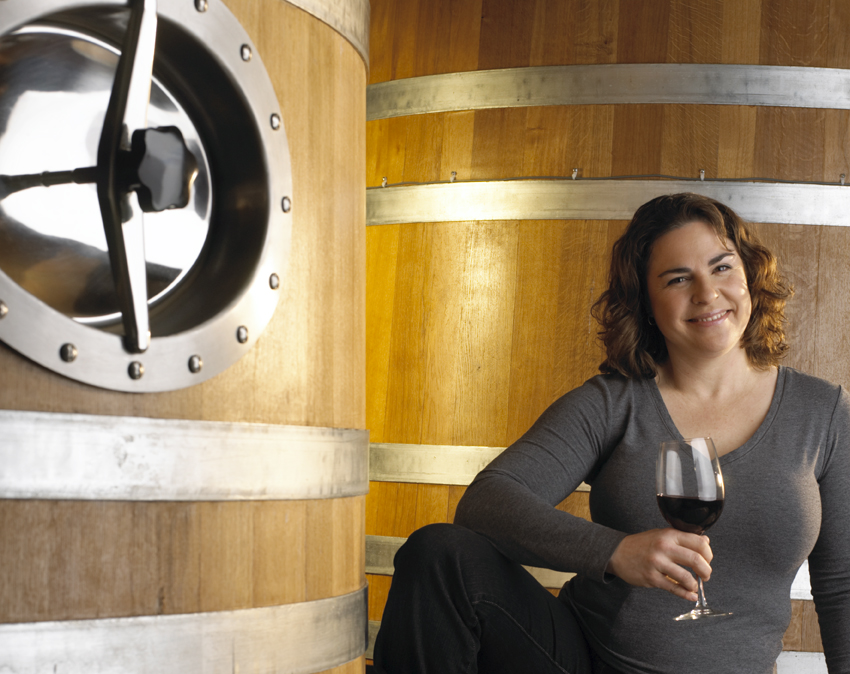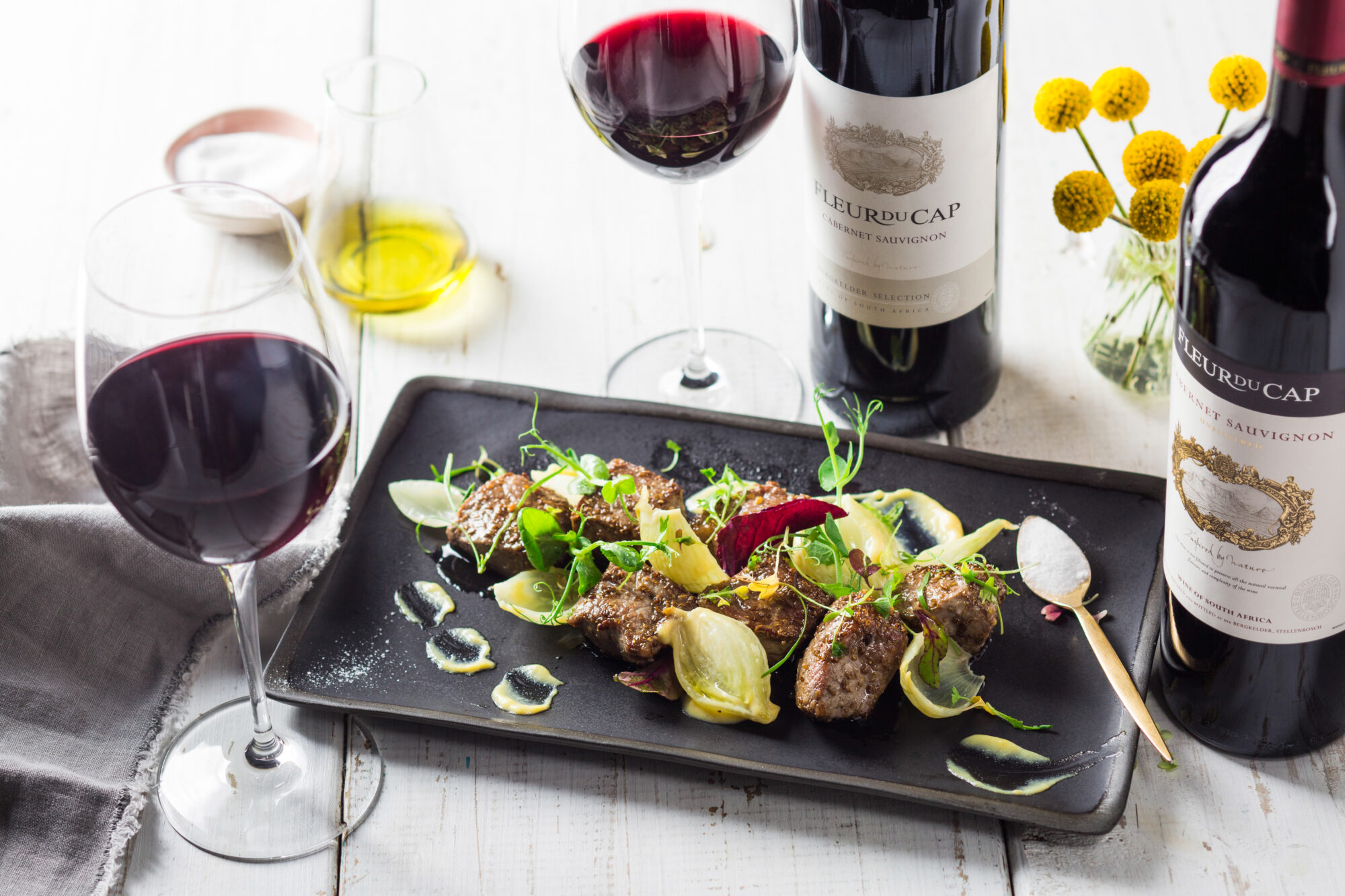This week, I spotlight Ann Sperling, Director of Winemaking and Viticulture at Southbrook Vineyards – Niagara-on-the-Lake, Canada.
Ann Sperling is arguably leading the charge on organic and biodynamic viticulture in Canada. She has become Canada’s foremost authority.
She has implemented organic certification at Malivoire’s Moira Vineyard (Beamsville) in 1999; has transitioned Southbrook Vineyards to biodynamic viticulture and winemaking in 2006, with Pro-Cert and Demeter certification in 2008.
Ann has also applied these concepts to various International projects including Sperling Vineyards (British Columbia) and Versado Wines (Mendoza).
Liz Palmer:
You have been Southbrook Vineyards’ Director of Winemaking and Viticulture since 2006 – what have been the highlights during your tenure there?
Ann Sperling:
There have been many milestones – we are Canada’s first Demeter vineyard, certified in 2008; also being granted Pro-Cert Organics (previously OC/PRO Canada Organic); and in 2012 we were recognized as “Winery of the Year” by InterVin International Wine Awards.
Liz Palmer:
When did you first become involved in organic and biodynamic practices?
Ann Sperling:
I grew up in Okanagan on the Sperling family farm that has been part of the family since my great grandparents, in the 1860’s. This is where I got my start.
In the early 1980’s I started working closely with growers and vineyard managers to make wines, and late in 1995 in Niagara I worked on start-up projects like Malivoire Winery which started organically and eventually biodynamic practices. For the past ten years (at Southbrook) I’ve had a strong connection with the vineyard and the land.
Liz Palmer:
What has been your greatest challenge as a winemaker to make organic and biodynamic wine?
Ann Sperling:
There are two things ongoing – we have continually have small production (damaged vines and nasty winters); and
What really needs to be addressed is that we receive little or no financial support federally or provincially for organic and biodynamic farming.
We are all self-motivated and find solutions ourselves – this is a good reflection on our team! We are very happy to be a sample.
There are some ongoing developments with Niagara Collage – they have a good understanding of what we are trying to do.
Liz Palmer:
Are all the vineyards in Southbrook organic/biodynamic?
Ann Sperling:
Southbrook’s first 75 acres were certified by Pro-Cert Organic Systems Ltd. (then OC/PRO Canada) in 2008. Our entire 150-acre property is now certified organic, including the hay and our sheep. Southbrook currently has one Demeter-certified biodynamic 75-acre vineyard.
The last two winters were the worst for growers and the production was small.
What we have come out with for 2016 is not an organic wine, but a “Seriously Cool” label which is an entry level, offering offering Seriously Cool Red and White.
Liz Palmer:
What are some of the most common misconceptions about organic/biodynamic wine?
Ann Sperling:
Consumers are now eating, drinking and recognizing the benefits to a healthy lifestyle and they don’t resist reaching for these products (biodynamic and organic wines and foods). It’s been positive and there has been an increase in sales.
Liz Palmer:
Are you finding any challenges related to climate change and global warming?
Ann Sperling:
Its been difficult to manage the radical swings in temperatures; especially the last two winters in a row.
Liz Palmer:
How closely do you work with the vineyard manager and team?
Ann Sperling:
Being Southbrook’s Director of winemaking, I oversee 150 acres of farm animals, forest and vineyards. I work closely with Scott Jones (Vineyard Manager) to oversee the activities; to see that they meet the standards, with the purpose of making the best wine possible. We’ve been working together for ten years.
Liz Palmer:
What are your winemaking goals in the next year or two?
Ann Sperling:
I also manage a winery with my sister, her husband and my niece in British Columbia; also own a small organic vineyard with my husband/winemaker, Peter Gamble in Mendoza. I’m looking at stylistically more age-able wine; producing clean fruit; watching current trends; creating elegant wines with more texture, and whole-cluster fermentation in all three locations.
Liz Palmer:
How do you maintain a work/life balance?
Ann Sperling:
I don’t…. but, I do have some flexibility at Southbrook. With travelling to three different places my children, and husband Peter Gamble understand my work. My husband works in the same industry – we help each other out and we are both passionate in what we do.
Liz Palmer:
What advice would you give to young women who want to pursue a career in wine?
Ann Sperling:
Women have always been involved in the wine industry and they have had many challenges along the way. Nowadays women have opportunities at every level: winemaker; managing a vineyard; and education. There are lots of opportunities with lots of like-minded people. You do have to put in lots of time and just wait for the right opportunity to advance to the next level in your career!
www.southbrook.com
@SouthbrookWine
Southbrook Vineyards
581 Niagara Stone Road, RR4
Niagara-on-the-Lake, Ontario
L0S 1J0 Canada



